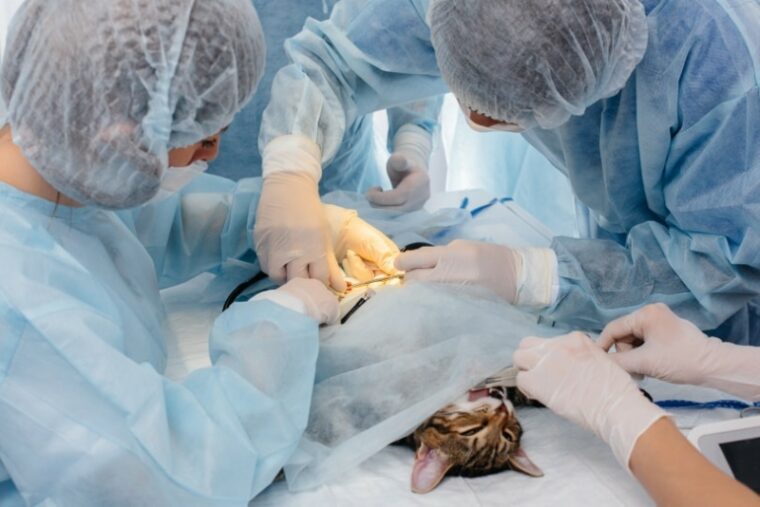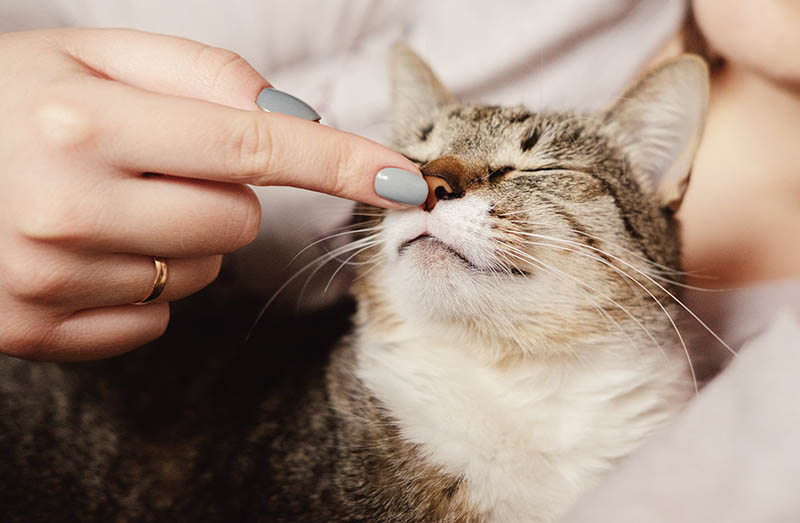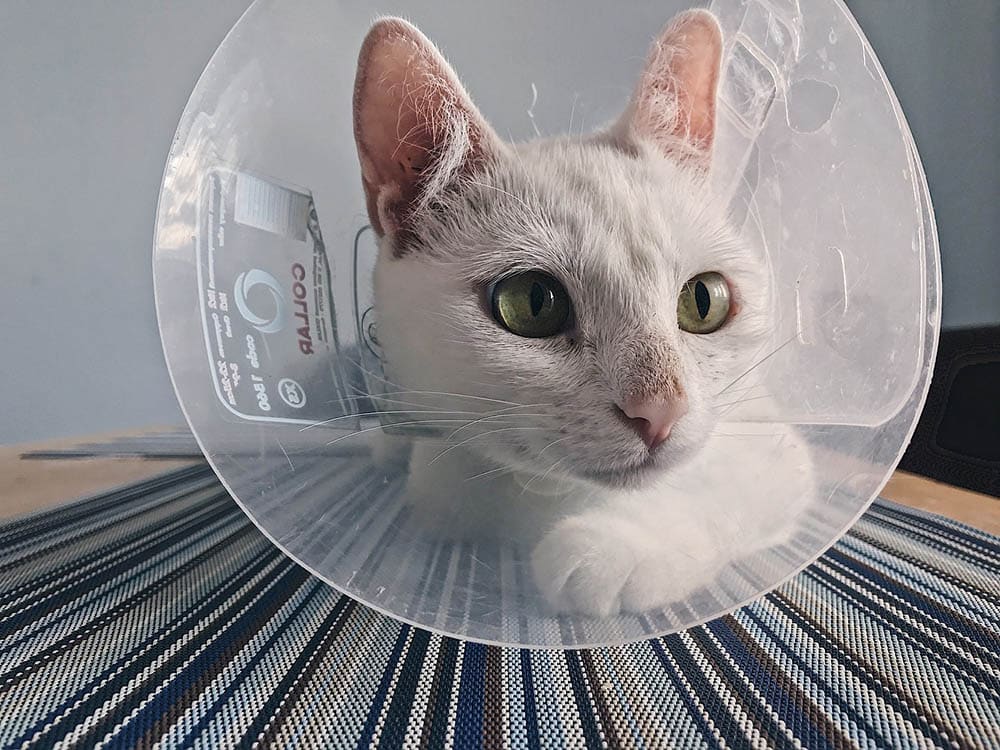
Click to Skip Ahead
Neutering has many benefits for your cat, including maintaining his health and fixing certain behavioral problems, such as urinating outside the litter box or aggression. Therefore, neutering your cat can help calm him down.
Neutering also eliminates the risk of accidental mating and the uncontrolled increase of the cat population in case your cat goes or lives outside.
In this article, learn about the neutering procedure, the proper age to get it done, and its benefits.
What Is Neutering?
Neutering (also known as castration or orchiectomy) represents the surgical removal of the reproductive organs (testicles). In this procedure, both testicles are removed, and the male becomes infertile, unable to reproduce. The procedure is simpler and takes less time for males compared to females, as is the subsequent recovery.
Non-surgical neutering involves injecting a substance into the testicles with the role of stopping sperm production and making cats infertile. However, not all hormone-producing cells are affected by this substance, so the testicles will continue to produce hormones. As a result, cats will continue to exhibit unwanted behavior.

What Is the Best Age for Neutering a Cat?
There is no general rule, as the right time to neuter your cat depends on several factors, mainly the individual stage of development and breed. Your veterinarian will know best what the right time for surgery is. That said, the standard period of neutering that’s accepted by most veterinarians is around the age of 5–6 months (before cats reach sexual maturity). But some cat breeds have early or late sexual maturity. Certain veterinarians may recommend neutering your cat before or after this age. Male cats can be neutered as early as 8 weeks old (typically those that live in shelters).
At the age of 5–6 months, kittens have not yet developed habits specific to puberty, such as urine marking. In fact, neutering is less effective on marking behavior after the kitten has passed puberty (8–12 months of life). This means at this age, neutering can be 100% effective in stopping urine marking. Once puberty is over, especially in cats over 1.5 years, neutering can lose its effectiveness in the case of marking.

What Are the Benefits of Neutering?
When cats reach puberty, they will seek to mate and mark their territory, so they will mark in different places in the house — walls, clothes, furniture, etc. Your cat will show the same behavior if he lives outdoors, but this behavior is not as disturbing because you do not smell the pungent odor of urine.
The reproductive instinct is quite strong. Your cat will “activate” every time a female cat in the neighborhood goes into heat. He will also spend long periods away from home in the spring and fall. Male cats usually come back very weak (because they won’t eat), seriously injured, and sometimes with conditions that can be fatal to them, such as feline leukemia. Therefore, neutering has the following benefits for your cat:
Unneutered male cats also tend to be unkempt, which can lead to skin infections, parasitic diseases, and discomfort. Neutered cats do not have this problem because they regularly clean their skin and fur.

What Are the Complications of the Neutering Procedure?
Any surgical procedure comes with risks, including neutering. The most important ones to note are:
How to Take Care of Your Cat After Neutering
This type of surgery is much simpler in males than in female cats. The recovery and healing time is also much shorter. However, you must pay attention to any signs of infection or bleeding.
Clinical signs of an infection at the incision site include:
Contact the vet as soon as possible if your cat shows these signs after the neutering procedure. As a rule, if the post-surgical instructions of the veterinarian are followed, there should be no risk of infection.
If the vet does not recommend an Elizabethan collar, ask for one. Its role is to prevent your cat from licking the incision site, therefore preventing infection and/or the need to remove the stitches.

Frequently Asked Questions (FAQs)
Do Cats Gain Weight After Neutering?
After neutering, your cat will undergo hormonal changes, which will make him less active. If he does not consume an adequate diet and does not exercise daily, there will be a risk of weight gain. Encourage your cat to exercise regularly (at least 15 minutes a day), and give him an adequate diet to reduce the risk of obesity and keep him in shape.
Will My Cat Give Up the Habit of Marking the Territory After Neutering?
Most likely, your cat will give up this habit once he is neutered. But you have to be patient for a while (up to 8 weeks) because hormonal regulation is done gradually, over time, and not immediately after the procedure. However, there is a small risk that this behavior will remain (albeit less pronounced) if you choose to neuter your cat after he reaches sexual maturity.
Does Early Neutering Increase the Potential for Urinary Tract Obstruction?
Studies show that this is actually a myth and that early neutered cats are no more likely to develop urinary tract obstructions than later neutered cats or intact cats. The cats used in the study were neutered cats (at 7 weeks and 7 months) and intact cats.

Final Thoughts
Neutering is effective in stopping cats from reproducing, but this procedure has many more benefits. Since it affects the production of hormones, your cat’s desire to reproduce is eliminated, making him more relaxed and less aggressive. Also, the chances that your cat will mark his territory after neutering are quite small. To make sure your cat will stop this unwanted behavior, though, it is recommended to neuter him before he reaches puberty.
Featured Image Credit: Andrii Medvednikov, Shutterstock







